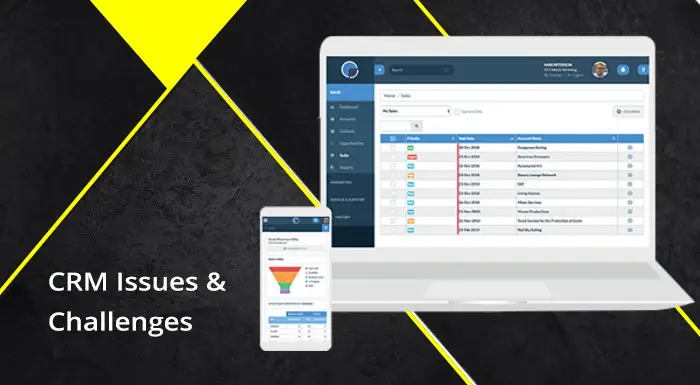In the competitive service environment of today, organizations tend to get confused between CRM and Field Service Management software — but each has a different purpose. A CRM (Customer Relationship Management) system is designed for customer interaction management, lead nurturing, and sales performance improvement. On the other hand, Field Service Management (FSM) software assists in managing on-site personnel, automating scheduling, and service delivery optimization. For service-based businesses such as plumbing, combining CRM and FSM solutions builds a strong system that fosters communication, productivity, and customer satisfaction. Products such as eLeads CRM are designed to fill this gap for service-based businesses. This blog discusses how both products differ, their individual strengths, and how they combine to achieve better results for service-based businesses.
Field Service Management Vs CRM
A Field Service Management Vs CRM field helps businesses streamline and optimize their field efficiency. However, a customer relationship management (CRM) tool offers another opportunity to anticipate and plan for the full customer experience. It's possible to confuse one with the other – but they are very different systems.
A CRM can also help companies follow every interaction with a client from first contact through closing the sale. A good CRM application is an assistant for entrepreneurs in that it is able to prospect clients and guide them through the sales process to conversion.
But what if the business is field-based, and you have to transfer the leadership to your field sales team? For instance, a dedicated field of sales management software by a mobile CRM is what the business requires. A field sales management tool has numerous features that enable you to do your job more efficiently and effectively. For plumbing firms, a dedicated Plumbing CRM Software can handle customer relationships and field operations effortlessly.
Why Do You Need CRM Or Field Service Management Software?
Your field of sales management software assists you in managing the entire customer relationship process. With software on the field force's fingertips, you can monitor each step in and out of a customer journey related to lead generation and win rates.
With an effective CRM or FSM, you can:
- Get real-time updates on Field resources.
- Collect and record information without paperwork.
- Automate and make smart assignments.
Benefits of a CRM or Field Service Management Platform
Implementing either a robust CRM (Customer Relationship Management) tool or a dedicated Field Service Management (FSM) platform delivers a range of meaningful business advantages:
Having either a strong CRM (Customer Relationship Management) solution or an exclusive Field Service Management (FSM) platform provides a number of significant business benefits:
CRM benefits
- By implementing a CRM, you achieve a single view of the customer — all customer interaction history, preferences and enquiry data are stored in one location, allowing for more personalized communications.
- A CRM assists in building customer retention by marking inactive accounts, monitoring follow-ups and ensuring you don't lose track of any client.
- It optimizes sales and marketing processes — eliminating manual work, cultivating leads and allowing your team to spend more time closing deals.
- Improved cross-team coordination: with a single customer system, marketing, sales, service and support are coordinated and operating from the same data.
- Data-driven insights: CRMs offer analytics and dashboards that enable you to spot trends, close gaps in your customer journey, and plan strategically.
FSM (Field Service Management) benefits
- FSM software helps reduce operational costs by optimizing resource usage (technicians, parts, travel) and automating what used to be paper-based workflows.
- It significantly boosts productivity in the field — real-time job data, scheduling, dispatching and mobile access put more control in the hands of your field teams.
- Improved customer service: faster response times, improved first-time fix rates and communication provide your customers with a better experience.
- Improved visibility and analytics: from field staff activity to asset performance and job history, you have insights that inform ongoing improvement.
How CRM and FSM Work Together for Business Growth
When you opt to embed a CRM or FSM solution — or better yet, both — you're really paying for operational clarity. As a service business (e.g., plumbing, HVAC, or any field work) your field staff are your brand ambassadors. Arming those teams with mobile technologies, scheduling insights and customer history makes every site visit a chance not only to repair the issue — but to build trust, collect feedback, upsell as needed and create long-term loyalty. And, in today's marketplace, merely reacting is not good enough.
Your customers expect proactive contact, openness and an effortless experience from initial contact through post-service follow-up. A CRM provides you with the customer journey front-end control, and FSM manages the back-end reality of performing service in the field. They complement each other and create a harmonious ecosystem: you're bringing in leads, developing relationships, routing field work smartly and keeping customers in the loop at all times. It's a holistic solution that makes you competitive, enhances margins and lays the foundation for long-term growth.
A Quick Comparison
CRM can inform you of how your business is doing overall and allow you to look at what levels of service you are delivering from your clients' point of views. It involves looking at your overall sales communications strategy and comparing it with what actually happens in the real world so that you can spend some time closing any gaps you may have if they turn out to exist and be one step ahead of everyone else.
Including a field CRM or mobile sales force automation solution within your business enables you to monitor your staff's progress and performances along their journey, i.e., from pitching a specific client, delivering their service, and ultimately closing a sale on behalf of the company. This allows you to effectively monitor important segments of the field sales process, enabling you to schedule them accordingly, enhance productivity through the knowledge of how certain tasks can be automated, and better serve customers.
Conclusion
Discover the key differences between CRM and Field Service Management software. Learn how CRM enhances customer relationships while FSM optimizes field operations. For plumbing and other field-driven businesses, integrating both systems improves communication, automates tasks, and delivers exceptional service experiences. This detailed comparison explains how CRM supports sales, lead nurturing, and customer tracking, while FSM focuses on job scheduling, real-time updates, and technician management. Understand why combining these tools helps streamline operations, boost productivity, and strengthen customer satisfaction. Perfect for businesses looking to modernize their workflows and scale efficiently through technology.
Author’s Bio

Hello, I am Ashish Dwivedi. I am a core CRM developer with 15+ years of experience in delivering efficient CRM solutions that drive business growth and efficiency. I specialize in creating extensions for SuiteCRM and SugarCRM. My most notable extensions include SuiteCRM Email to Lead, SugarCRM Mailchimp, and SuiteCRM BCC Archiver. I also have a CRM of my own called Guestpostcrm.








